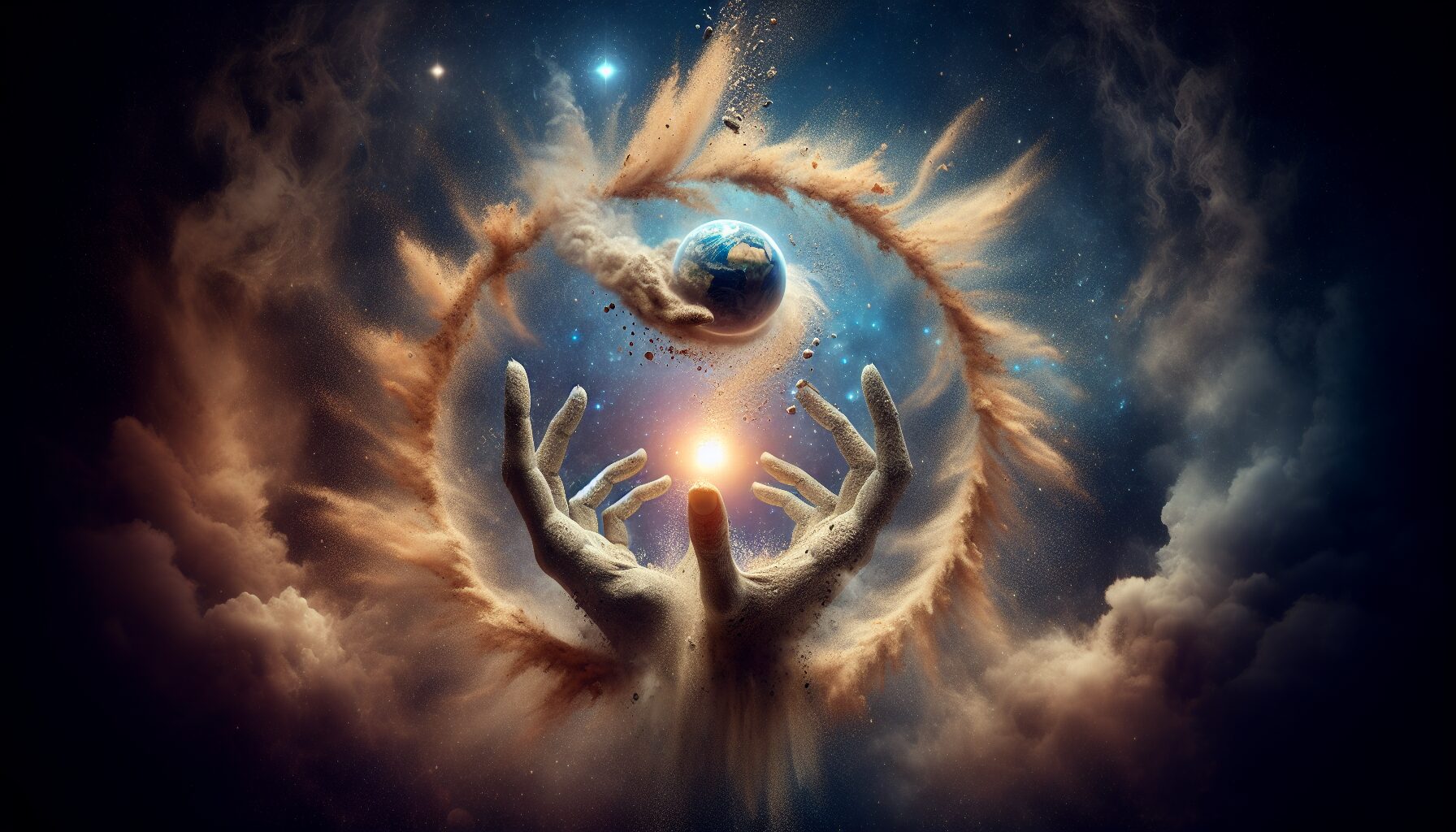Dust to Dust: Mysticism of Returning to Earth
The ancient cycle of life and death has fascinated humanity since the dawn of time. It is a story not just of endings but of beginnings too, as eloquently captured in the phrase, “for dust thou art, and unto dust shalt thou return.” This mysterious transformation is the heart of many spiritual and cultural traditions, each imbuing the process with its own mysticism and significance.
The Cycle of Life and Death
The concept of returning to dust is more than a biological process; it is a spiritual journey echoed throughout world religions and philosophies. From the earliest times, humans have recognized their connection to the earth. As the poet Kahlil Gibran observed, “In one drop of water are found all the secrets of all the oceans; in one aspect of You are found all the aspects of existence.”
This beautifully encapsulates the interconnectivity of life and reminds us of our inevitable return to the earth.
Ancient Traditions and Beliefs
- Egyptian Afterlife: The ancient Egyptians believed in a meticulous journey after death requiring intricate rituals. The idea was not only to preserve the body through mummification but also to prepare the soul for its eventual return to the earth through various reincarnations. The cycle was seen as an opportunity for transformation.
- Hindu Cremation Rituals: Hinduism views the body as a temporary vessel for the soul. Upon death, the body is cremated, symbolizing the release of the soul. The ashes are then immersed in a holy river, which is believed to help free the soul from the cycle of reincarnation and assist its return to the earth.
- Indigenous Earth Burials: Many indigenous cultures hold a deep reverence for the land. They view the earth as the Great Mother, and returning to her in death is seen as a natural and sacred transition. These beliefs are manifested in ceremonies that celebrate the land-to-earth connection.
Modern Interpretations and Environmentalism
In today’s world, returning to the earth is taking on new dimensions. The environmental movement has begun to influence how societies view death and the afterlife. Green burials are becoming increasingly popular, emphasizing simplicity and minimal impact on the earth.
These environmentally friendly funerals avoid embalming chemicals and often utilize biodegradable coffins or natural burial sites to allow the body to decompose naturally. As leading environmentalist Bill McKibben notes, “The burial is a return to a circle of life rather than the end of an industrial process.”
Philosophical Insights
Philosophers and spiritual thinkers continue to explore the notion of returning to the earth with renewed vigor, emphasizing it as a transformative process. Existential philosopher Jean-Paul Sartre believed that death gives life its ultimate value by providing an endpoint that defines our actions and relationships. This notion echoes the cycles found in nature, suggesting a harmony between living and dying.
In his seminal work, The Denial of Death, Ernest Becker discusses how mankind’s fear of death is a fundamental element driving behavior and culture. Yet, within this fear lies the opportunity for a deeper understanding of life’s interconnectedness with nature. He writes, “The human condition is that man lives paradoxically in time and yet also outside of it.”
The Comfort of Returning to Earth
There is a profound solace in the idea of returning to the earth. It symbolizes a return to one’s origins, a dissolution of individuality into the broader ecosystem. This is not just an end but a continuation and a renewal of one’s existence in a different form.
For many, the idea that their life will continue to nourish the earth and that they will become part of the universe’s fabric offers a comforting existential resolution. This concept was poignantly described by Carl Sagan when he wrote, “The cosmos is also within us, we’re made of star-stuff. We are a way for the cosmos to know itself.”
A Final Embrace
The mysticism of returning to earth is more than a poetic notion or religious belief; it is a tangible reality that binds us all. As humanity grapples with its place in the cosmos and its impact on the Earth, understanding our final return as an intrinsic part of nature’s cycle has never been more important.
Ultimately, embracing our transformation from dust to dust can provide a more harmonious existence with the planet and a touchstone for finding meaning in both life and death. In this way, our return to the earth becomes not just an end but a final embrace, a coming-home to our truest form.

Comments